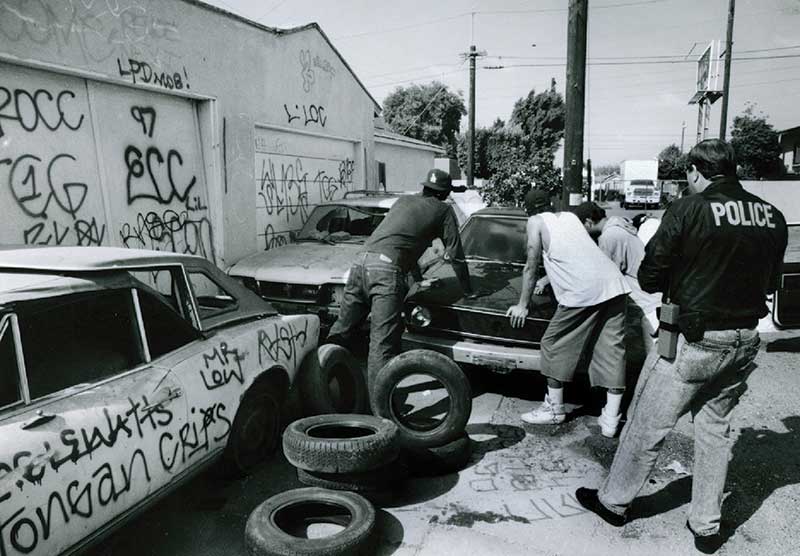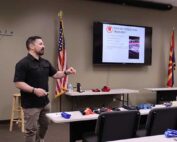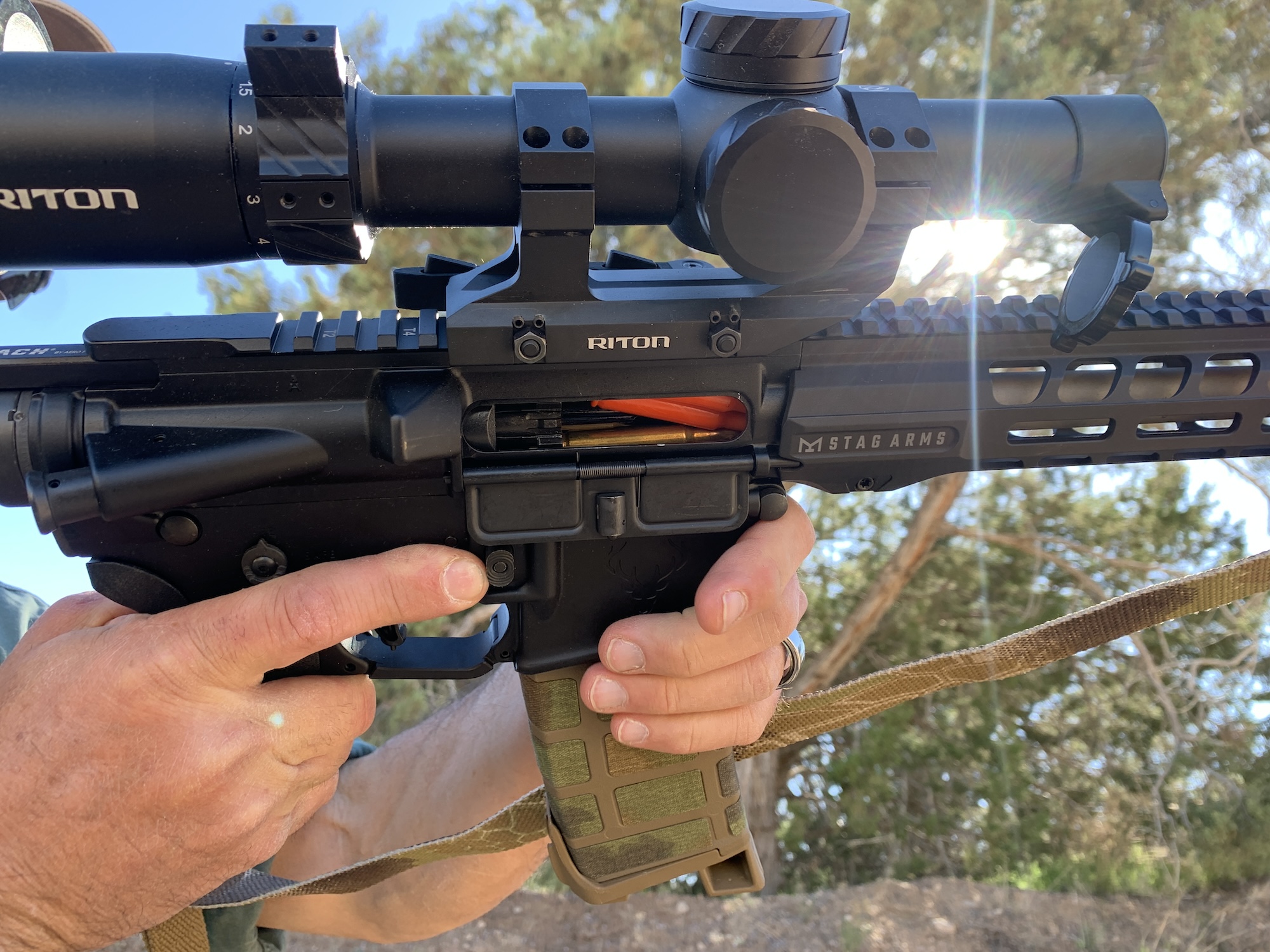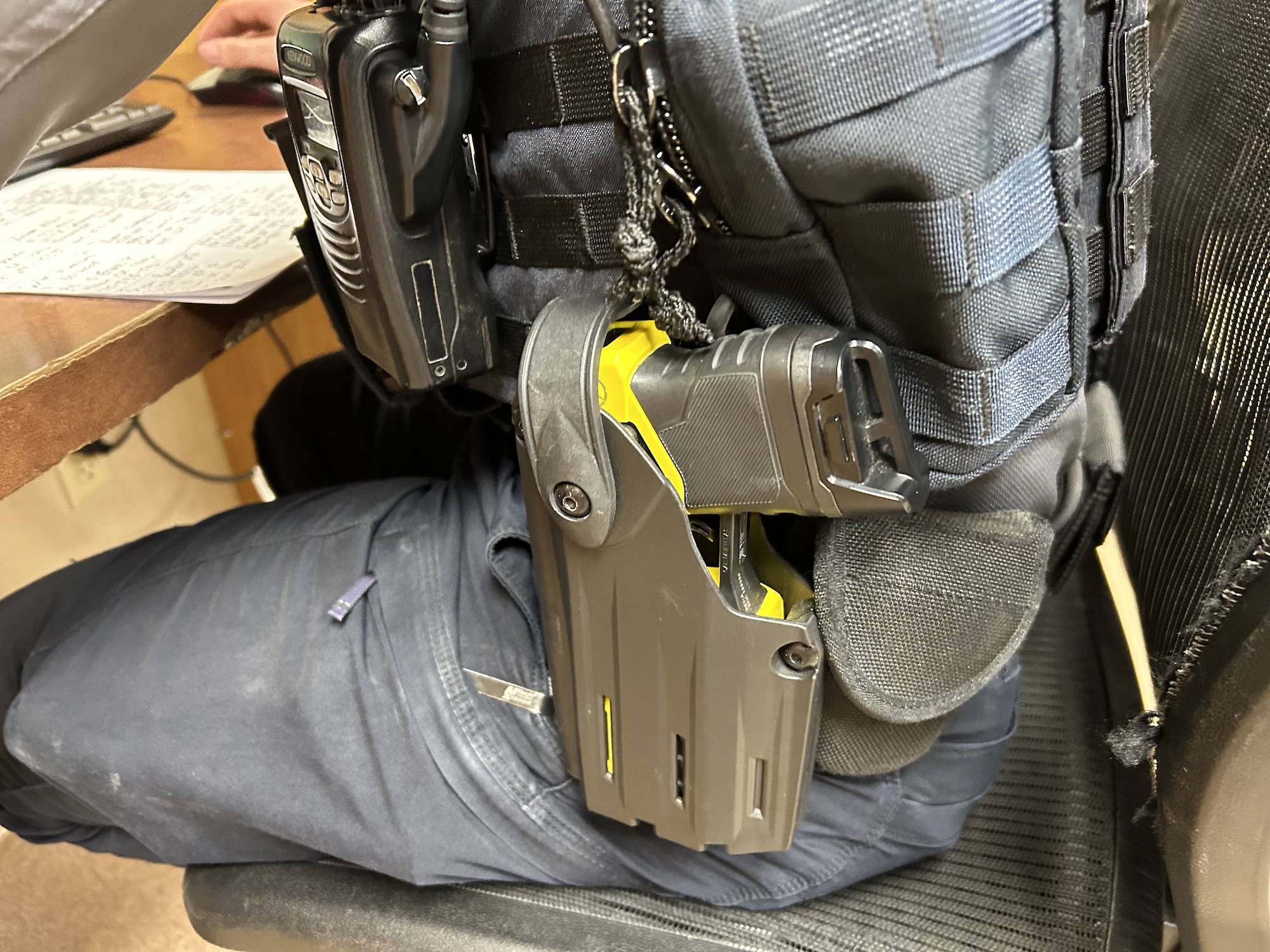
ACOCT12_IGNOR-4
Tactics, techniques and principles evolve over time. Our thinking has to evolve as well. Photo: Mike Mullen
There’s an old saying you can’t fix stupid, but that doesn’t mean we shouldn’t keep trying. I started pondering that issue the other day, following an interesting discussion I had with an officer. He’s one of those patrol officers I’m pretty sure every department has; the one convinced he’s seen it all, done it all, experienced it all, and now knows it all.
Our little discussion came about after he decided he would “handle and advise” (euphemism for: go by himself) a loud music call. As a previous field sergeant, and now a freshly minted lieutenant and watch commander, I’ve always been a stickler for two officers going to any type of disturbance call. Call me silly, but I actually believe this is a dangerous business and certainly don’t want any dead or injured officers on my conscience because I let them go to a disturbance call by themselves.

Confusing “good luck” with “good tactics” may work for a while, but then again, it may not. Photo: Mike Mullen
Since we were somewhat busy the day of the call in question, I responded myself. It turned out to be no big deal and was quickly resolved. However, when the call was finished and I took the opportunity to gently remind the officer about officer safety, his thinly repressed anger and resentment boiled over.
THE REASON?
While it seems almost asinine to put the reasoning in print, his basic premise was he was more than capable of handling a “simple” loud music call on his own. He didn’t need any backup, and my requiring a cover unit on these types of calls showed I didn’t trust my officers. As far as the trust goes, I gave him my stock answer: “I trust my officers explicitly. What I don’t trust is what, or who, they might run into on these calls.” I also pointed out my officer safety concerns, as well as my personal desire not to see him, or anyone else following his example, killed on a “simple” loud music call.
His response was to loudly challenge me to show him, “just one instance” of a police officer being killed responding to a loud music call. He then followed up his rant with a promise to stop canceling his backup if I could do so. Like the man said, it may be hard to fix stupid, but in this case, I simply sighed and decided to give it a try.

There were a lot of things we did back in the “bad ol days” we wouldn’t do today. We’ve learned through painful experience what works and what doesn’t. Photo: Mike Mullen
It only took a few minutes on the internet to find a number of articles documenting officers killed, or being forced to kill others, while responding to noise or music complaints. But those facts gave me little solace. Regardless of what I found, that officer’s mindset was firmly lodged in ignorance, and it would probably take an incredibly large bowel movement, or a life or death experience, for anything to change it.
But it did get me thinking about what I call the “Arrogance of Ignorance.” It’s the mental state where you’re so blissfully unaware of what you don’t know, you’re convinced you must know it all.
GOOD LUCK?
To be honest, the officer involved in this incident was not a bad street cop. He was in good shape, had prior SWAT experience, and had been involved in his share of scrapes over the years. And that, I think, is part of the problem.
I can’t recall who said it, but I read a quote once in a tactical magazine and it really hit home: “Success is not a barometer for tactical proficiency.” In essence, just because the situation was resolved successfully does not necessarily mean the tactics used were good. That’s why it’s always wise in debriefs to be sure you delineate “good luck” from “good tactics.” The officer in this case has obviously never learned that lesson. Unfortunately, if he continues in the same manner, when he does learn it, it will most likely be the hard way. And by then, it may be too late.
The process by which the officer arrived at this antiquated philosophy of policing was most likely a slow and steady one. He didn’t just suddenly forget everything he had ever learned at the academy, or been taught at our department. He got complacent and sloppy over a period of time, and only with some type of positive feedback. He had probably gone to a number of calls throughout his career which he needlessly, and foolishly, handled on his own. In many cases, he was probably allowed to do so by a supervisor without the foresight to anticipate what might happen, or the will to stop it.
“That officer’s mindset was firmly lodged in
ignorance, and it would probably take an incredibly
large bowel movement, or a life or death experience,
for anything to change it.”
In each case, the officer successfully resolved those calls, because nothing “bad” ever happened to him. In fact, his tactics, or lack thereof, were probably positively reinforced. He most likely got the call completed more quickly, and without the additional “burden” of having to wait for his backup, discuss any tactics, or debate with a partner over how to resolve the situation. In his own mind, the tactics he used were proven “right” (even if they were poor) because in each and every instance, he’d been successful. You can see how the internalized logic might have developed in this case. He’d always been successful before; therefore, he’ll continue to be successful doing it the same way in the future.
Or will he?
For those who dabble in critical thinking, this type of reasoning is called a logical fallacy. It’s like flipping a coin ten times. Each time it comes up heads, so you illogically deduce, based on your own previous experience, each and every flip of the coin after will also result in the coin coming up heads. Clearly, the logic is faulty, as it was in this officer’s deduction he would “always” be able to handle a loud music call on his own, because he’d always done so in the past. Over time, his continued success bred in him the arrogance of ignorance.
He became convinced nothing bad could possibly happen to him, despite well-documented literature to the contrary, despite my interruption of the process and explanations of how consequences might arise; despite what seems to be the obvious illogic of his position. The officer had become so locked into his belief he was literally willing to risk his life — all based on erroneous and illogical assumptions. That, my friend, is the power of ignorance.

Sometimes a life and death experience will shock us out of our ignorance, but by then, it may be too late.
RATIONALIZING
As a supervisor, part of my job is to protect my officers, even if it’s from themselves. So I printed out those dozen examples of officers killed, or being forced to kill others, and I gave them to the officer. I did it with another explanation of why I thought having a backup was the intelligent way to go. I also told him I had fulfilled my part of the bargain and therefore, expected to never hear him cancel his backup again.
I don’t really know if it made an impression; my guess is it did not. It’s just too easy to allow your own belief system to overwhelm logic. The chances are good he’ll rationalize away the examples, as something only happening to other “lesser” officers — officers who weren’t as good, weren’t as quick or savvy as he. So, just in case, I’ll continue to be a hard ass and require officers go to disturbance calls with a backup. It’s better than going to another cop funeral. Stay safe, and never stop thinking — clearly.














